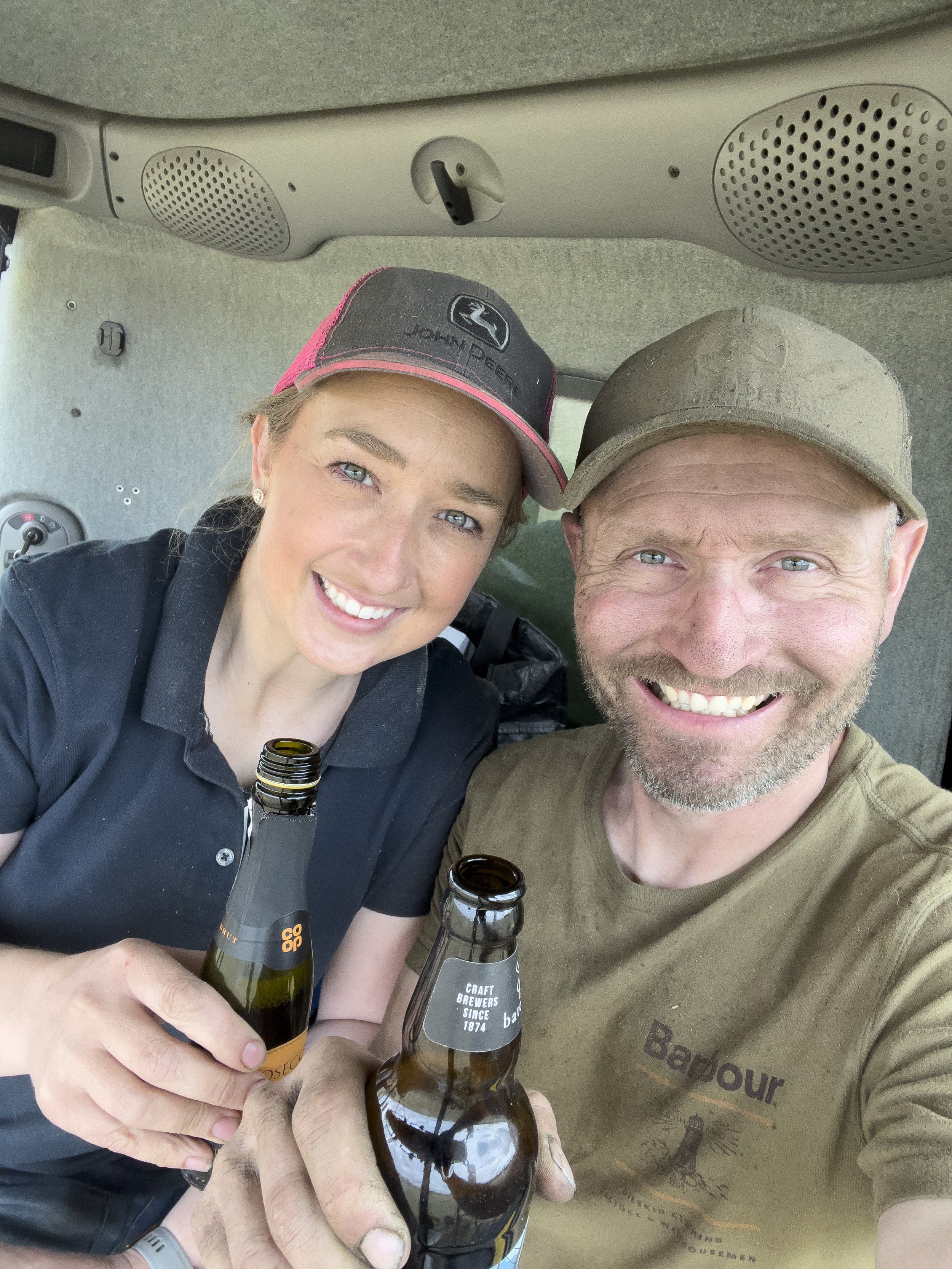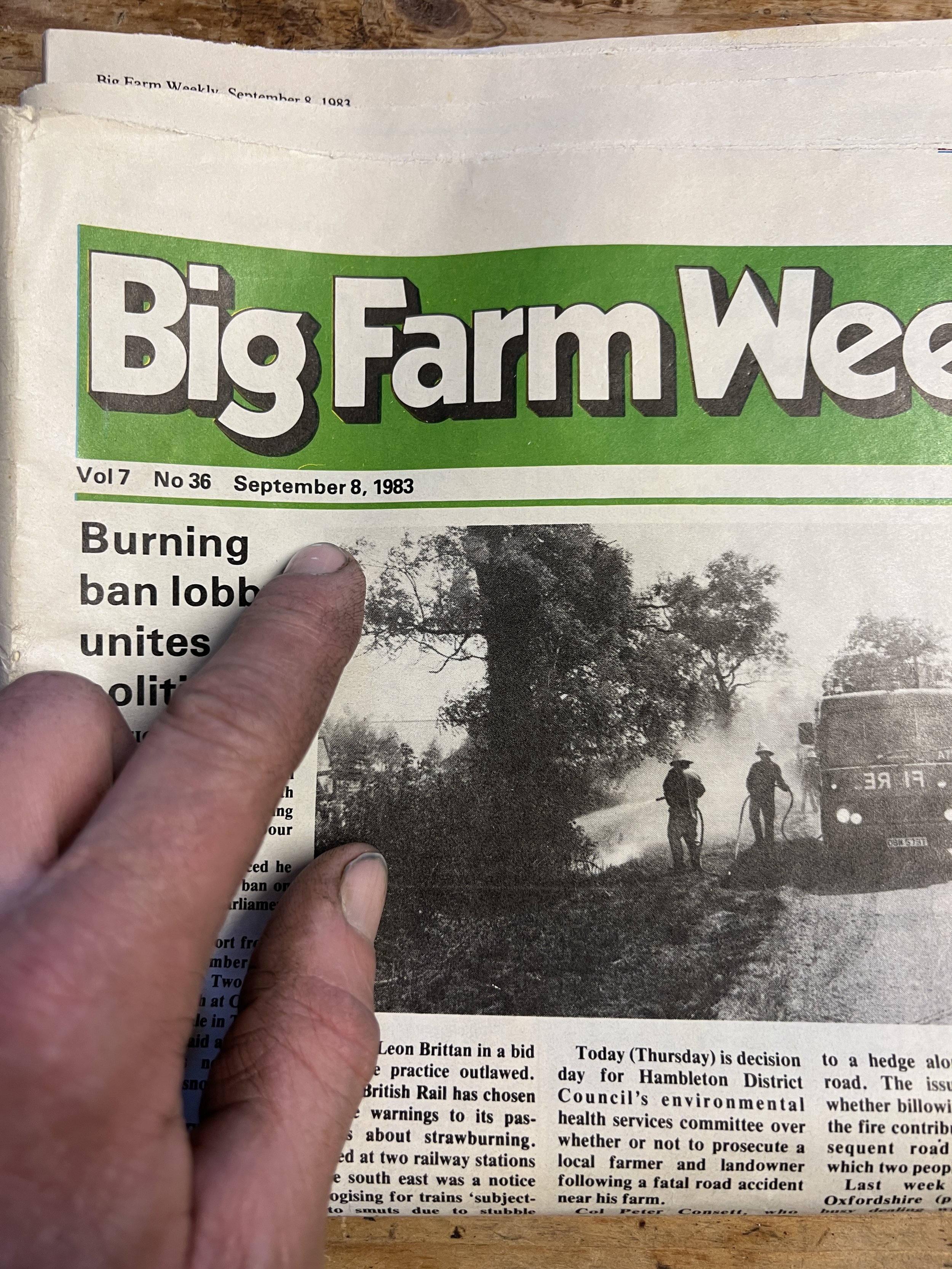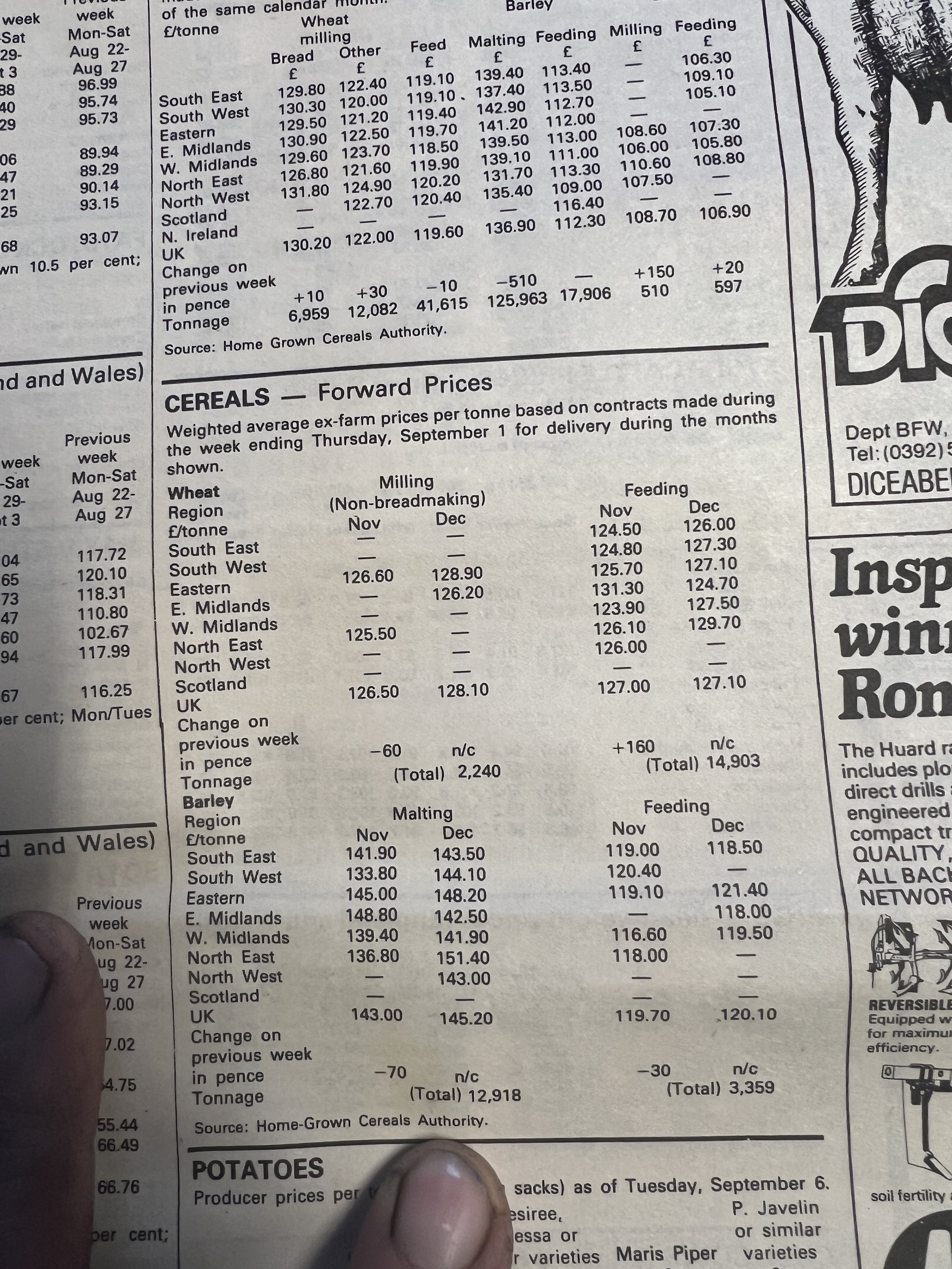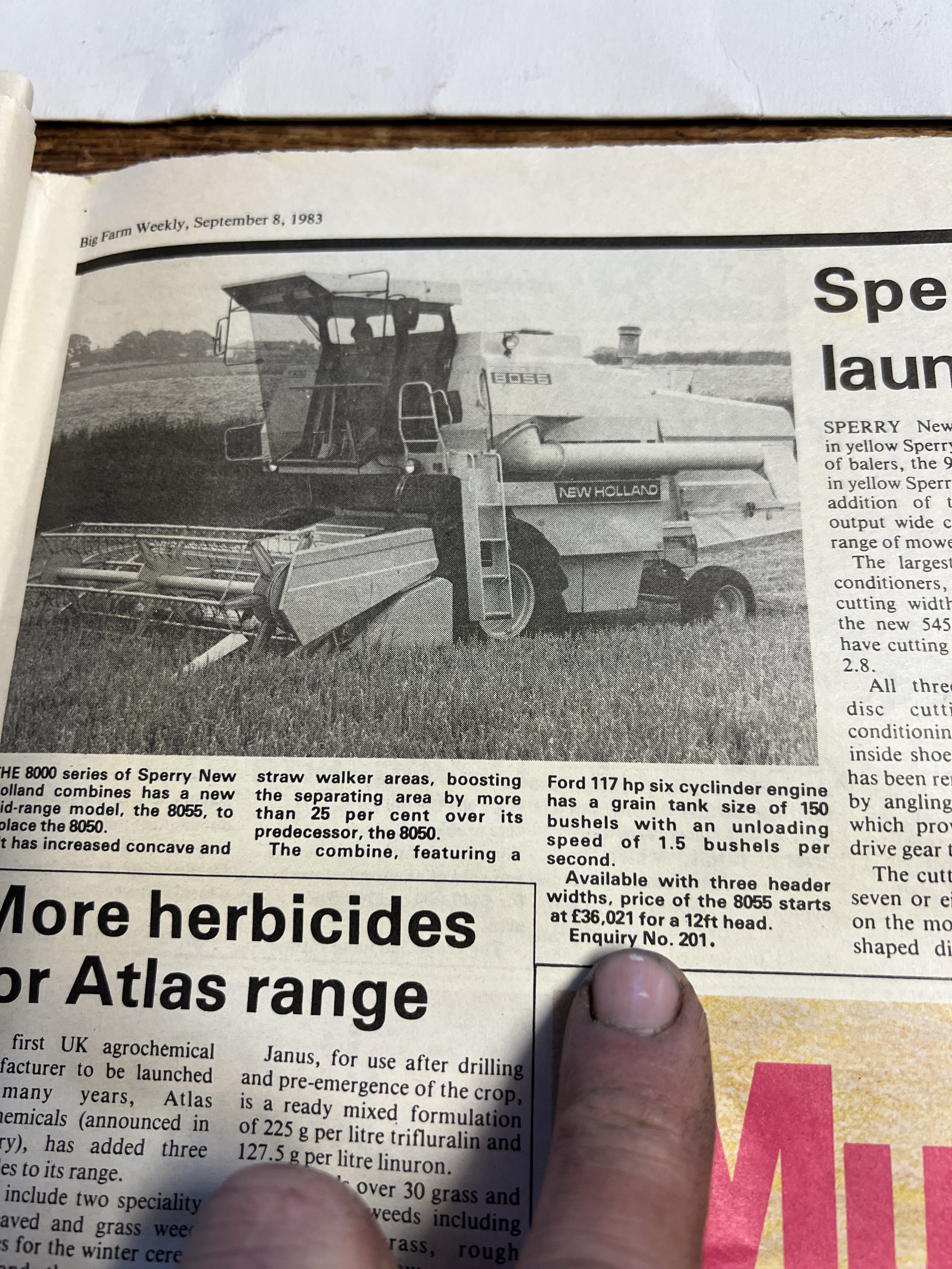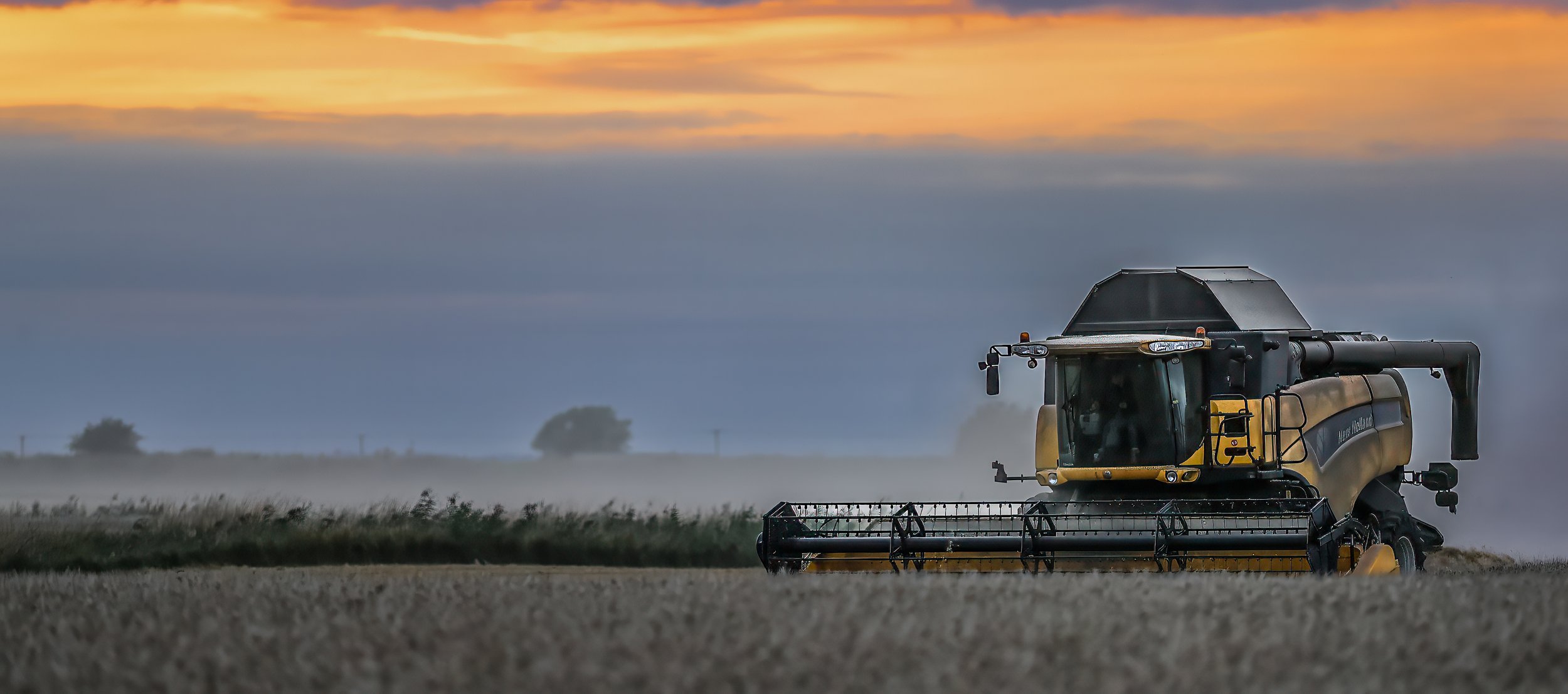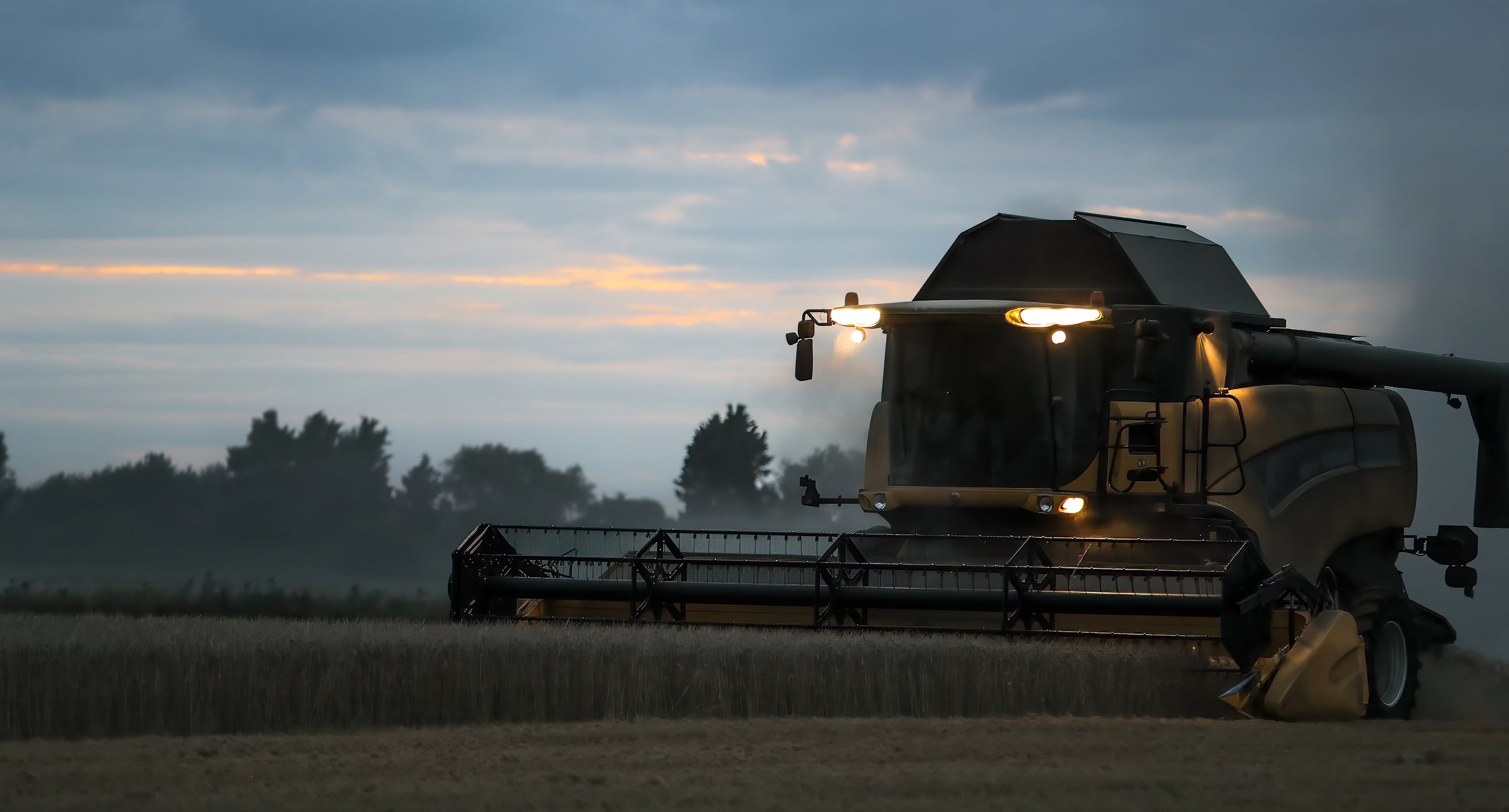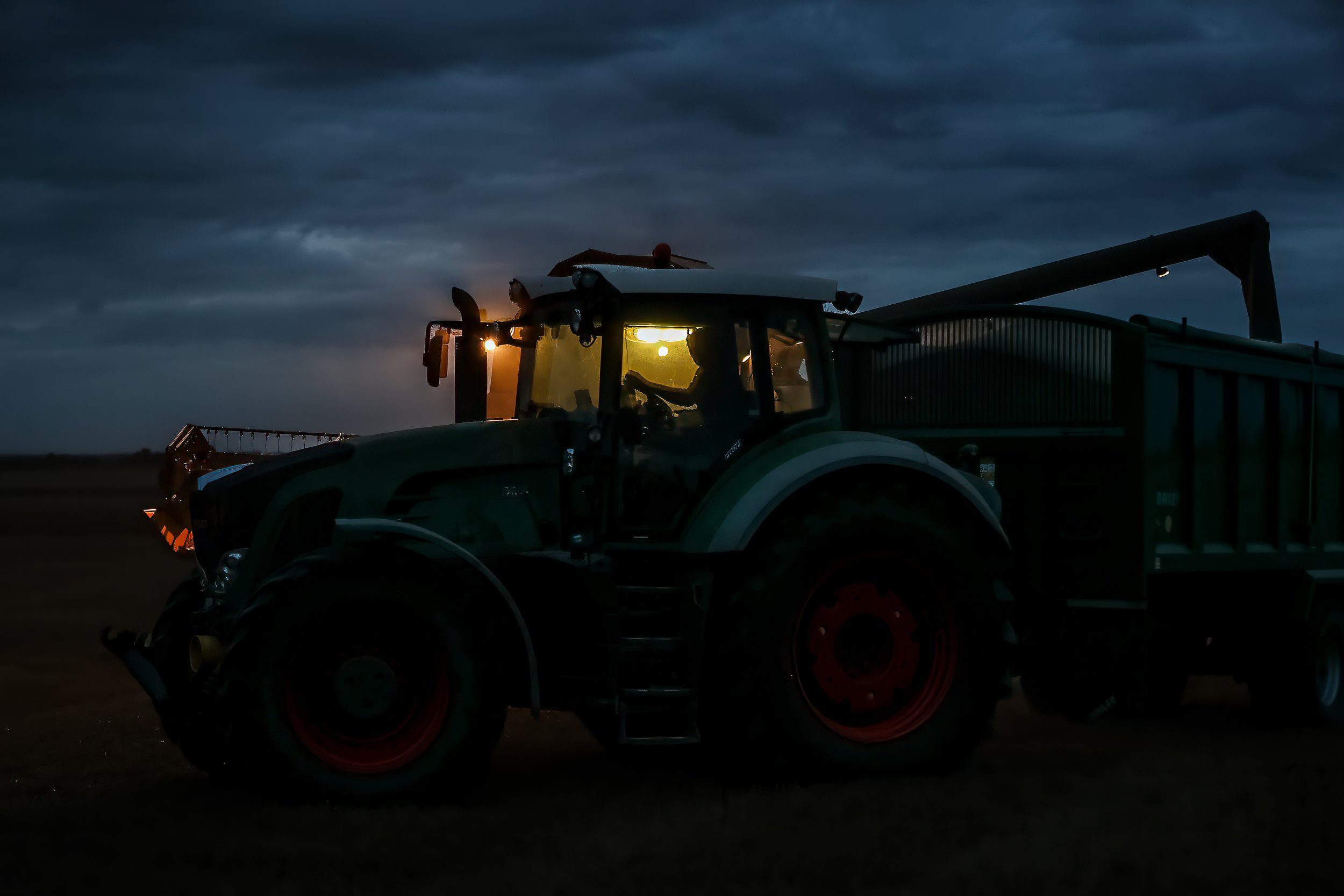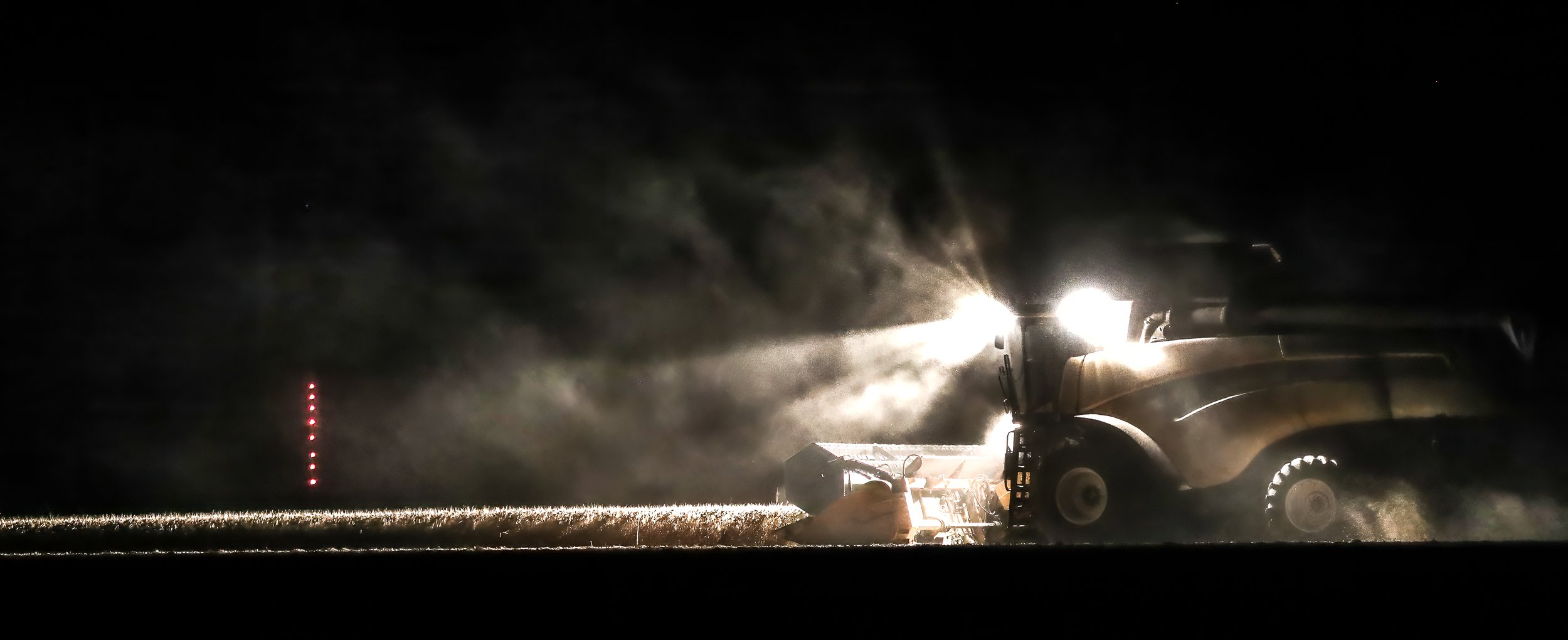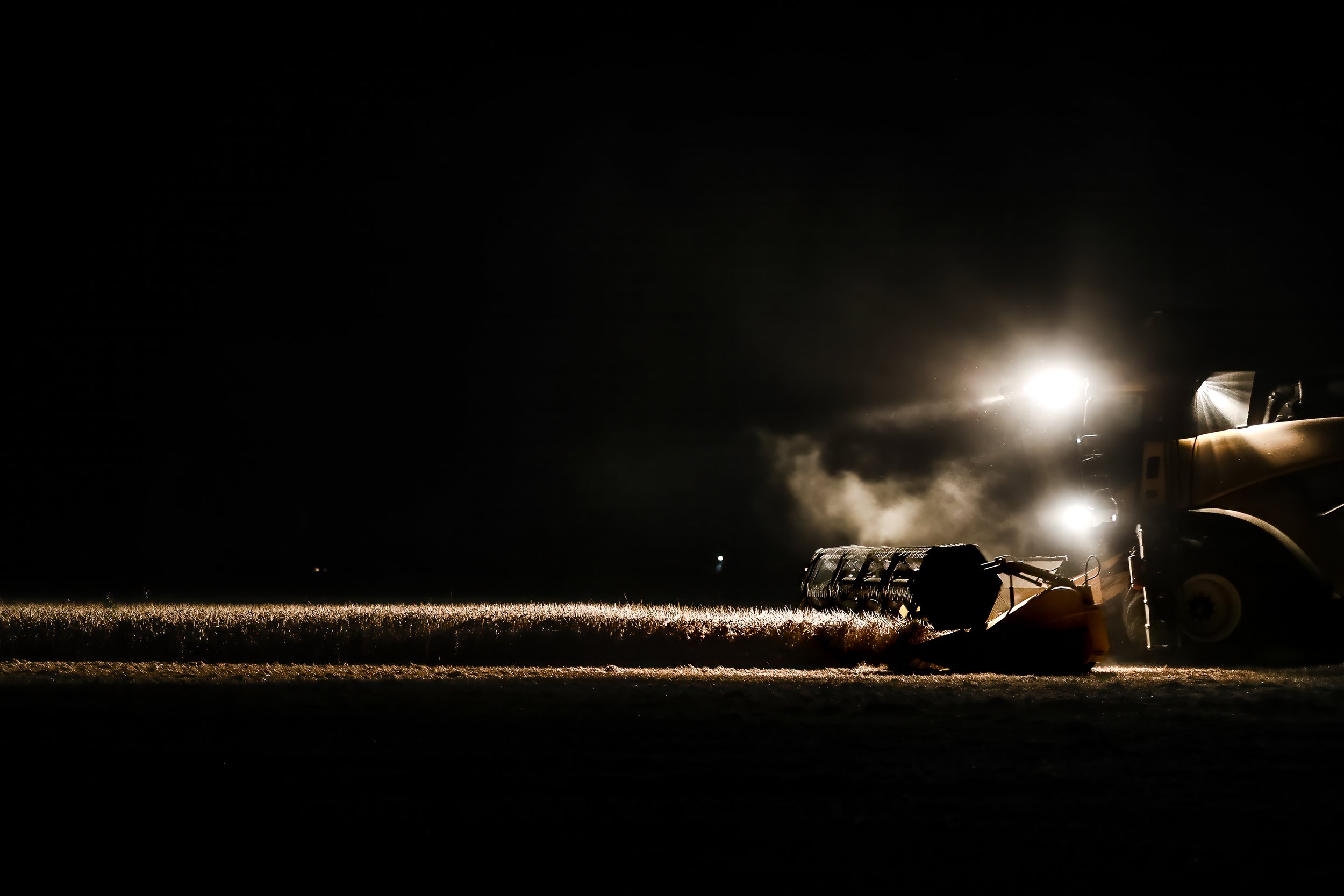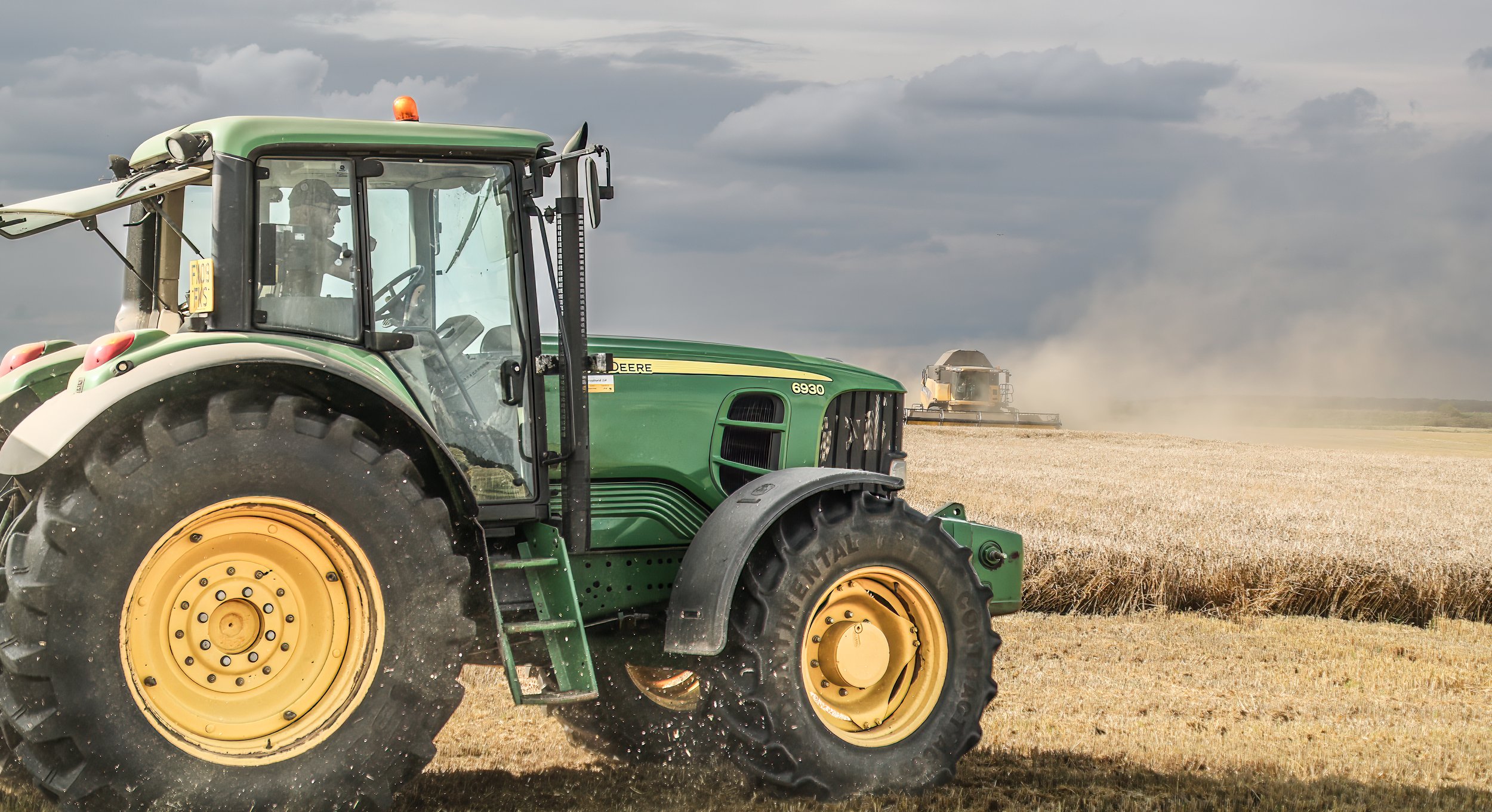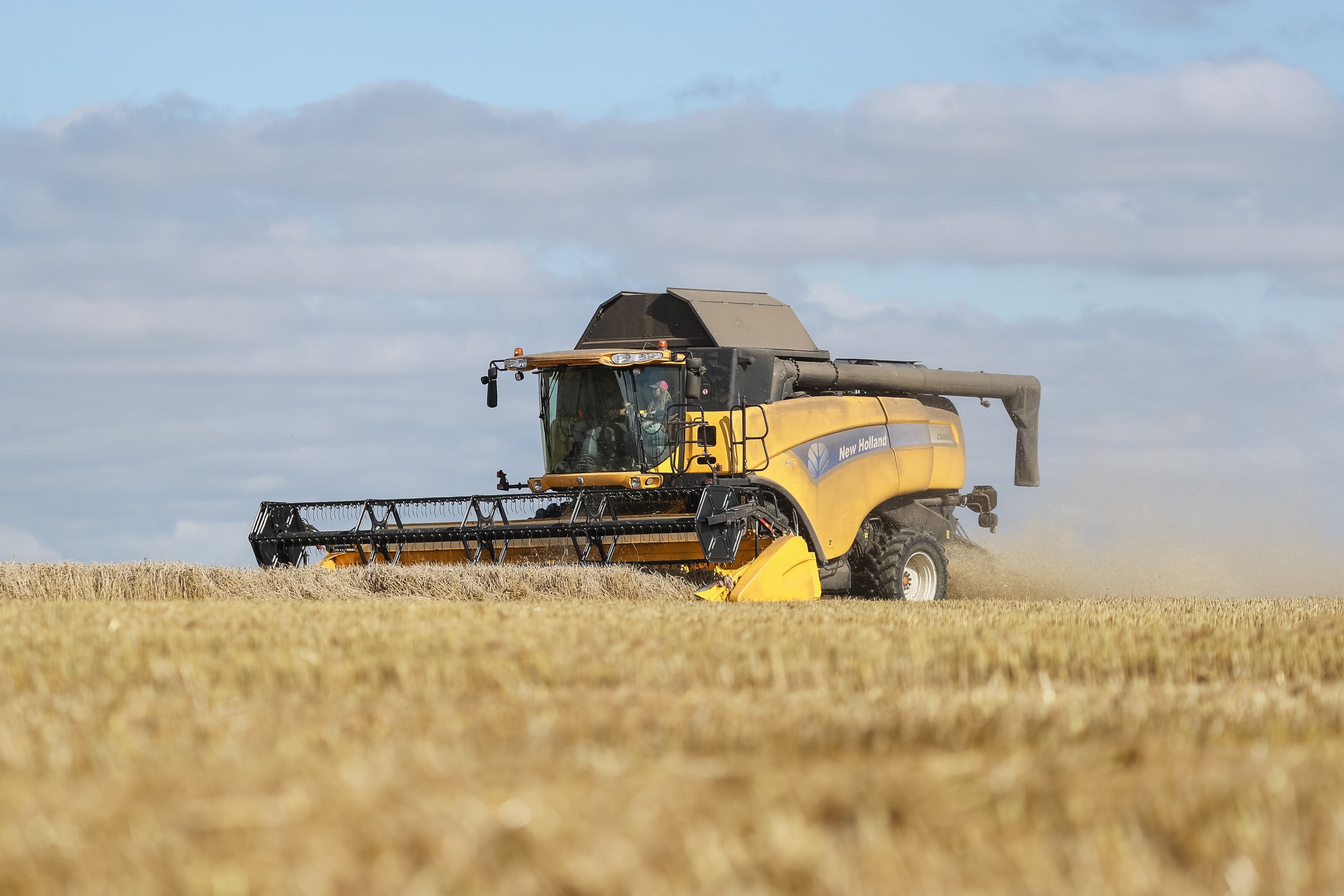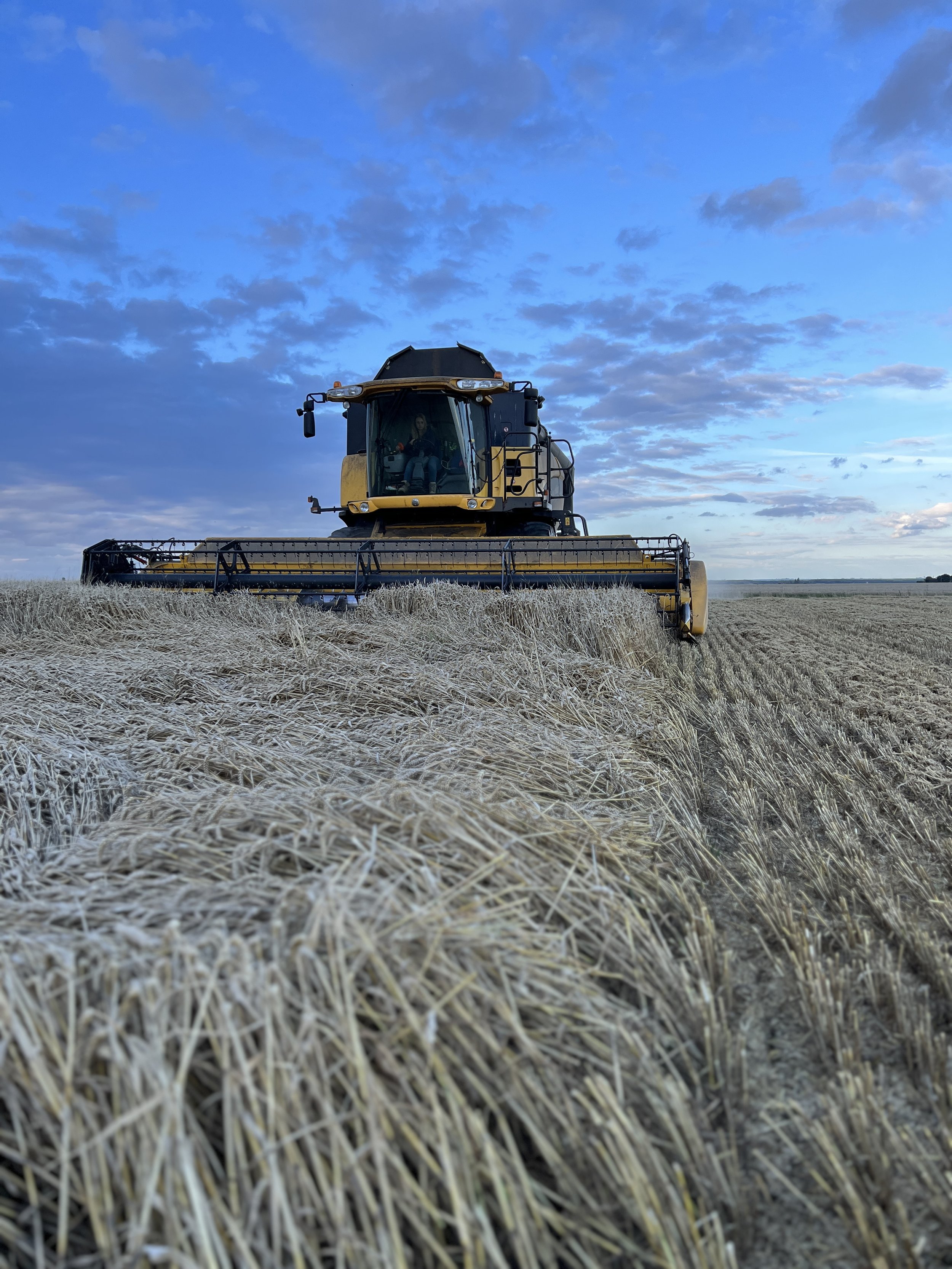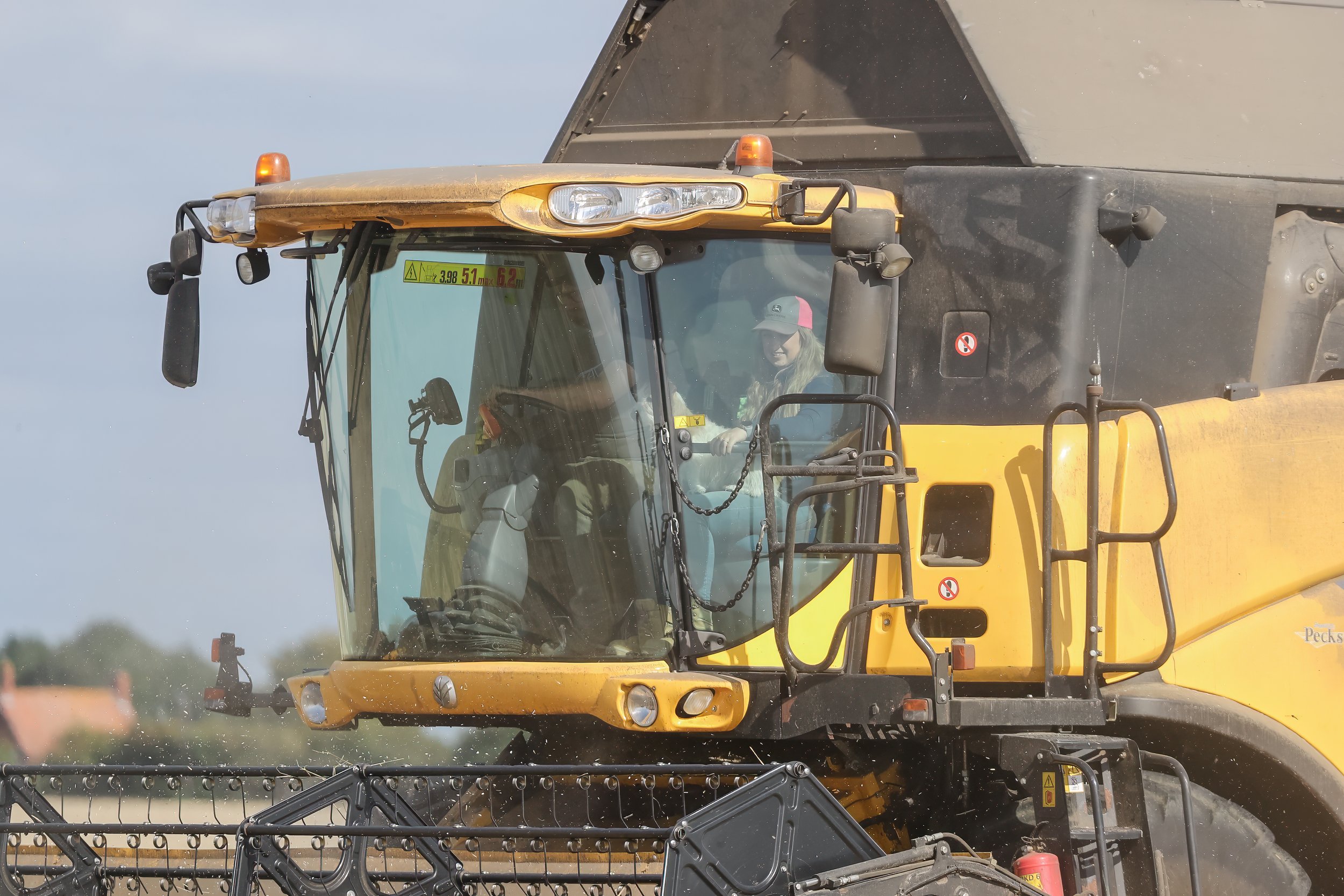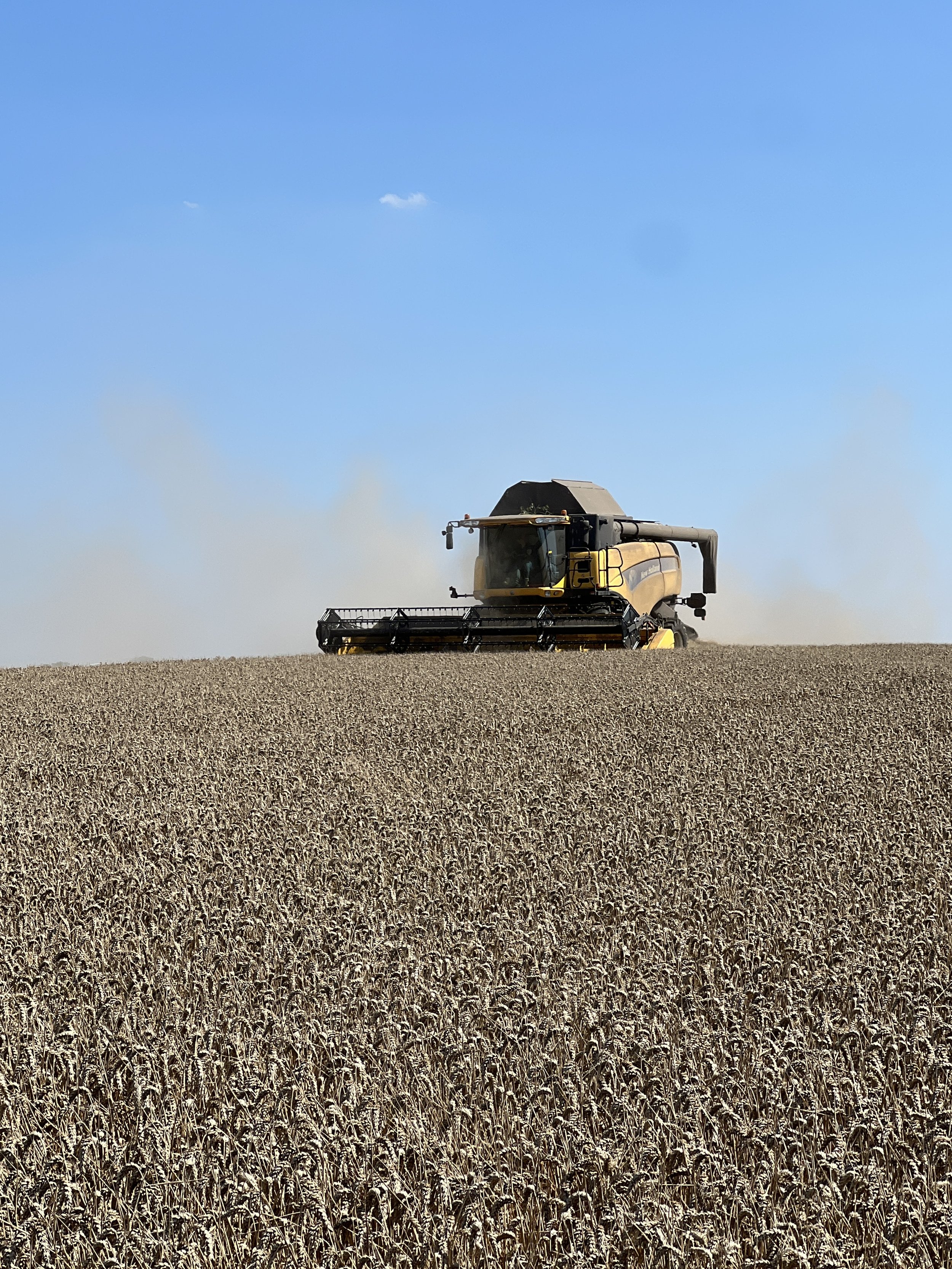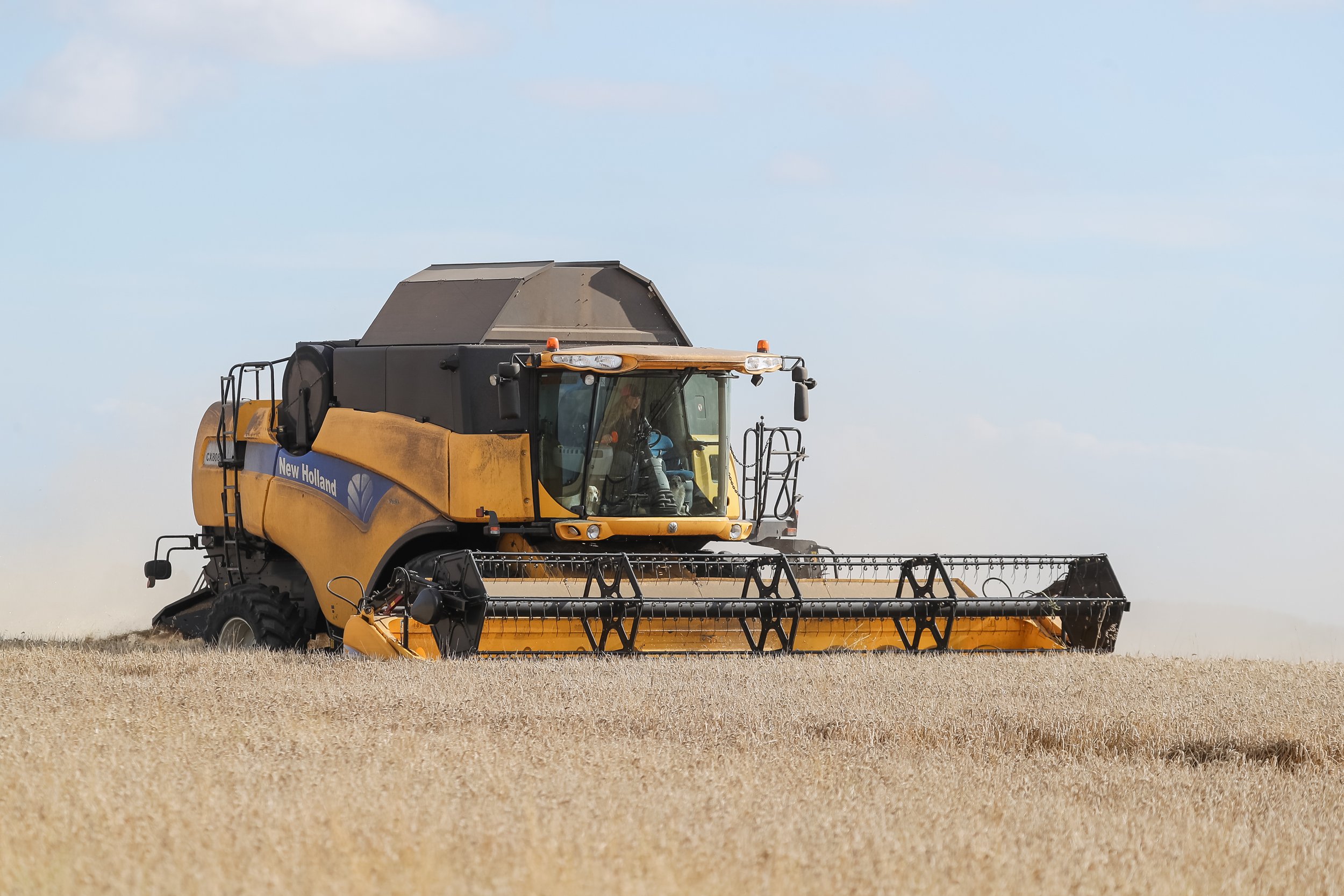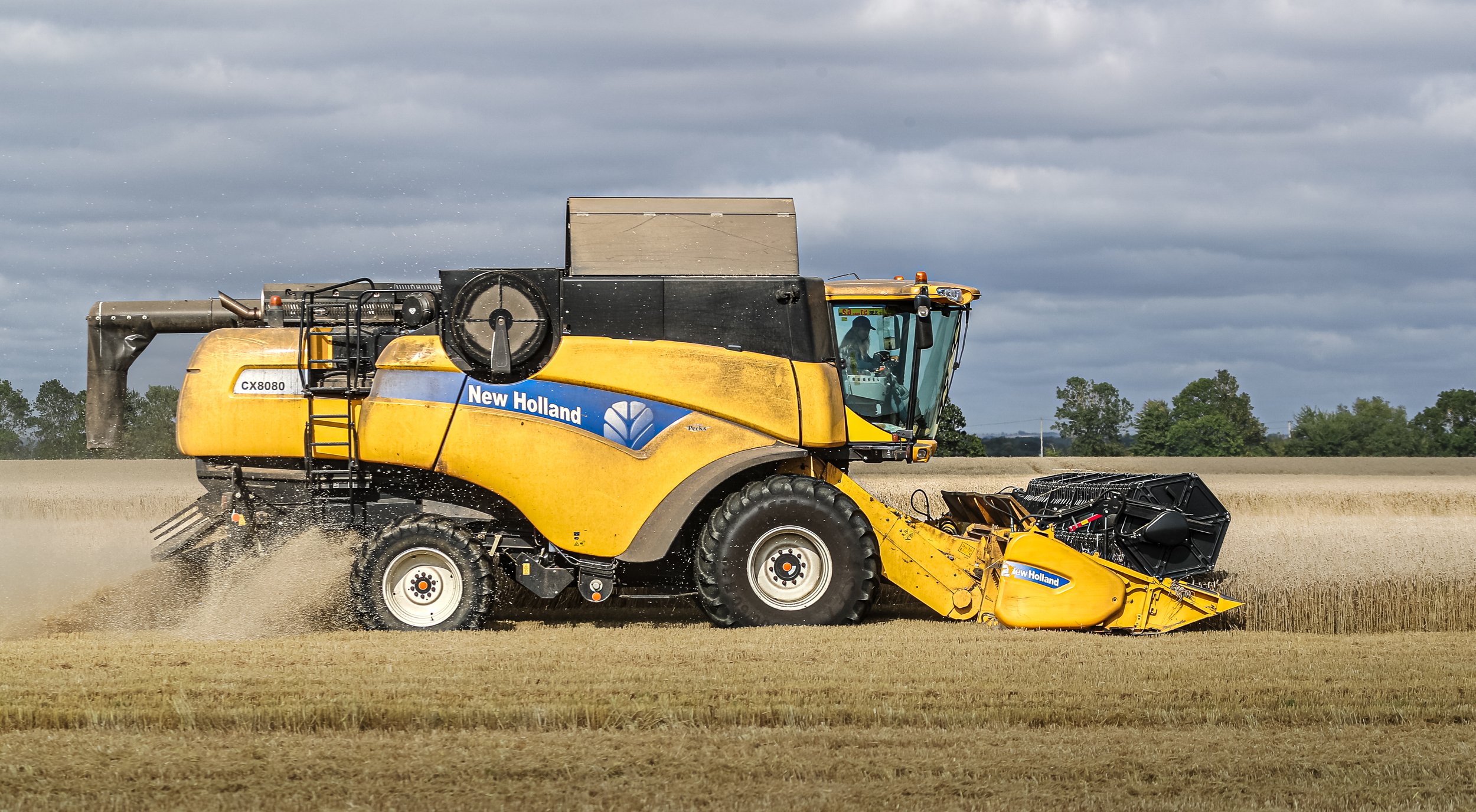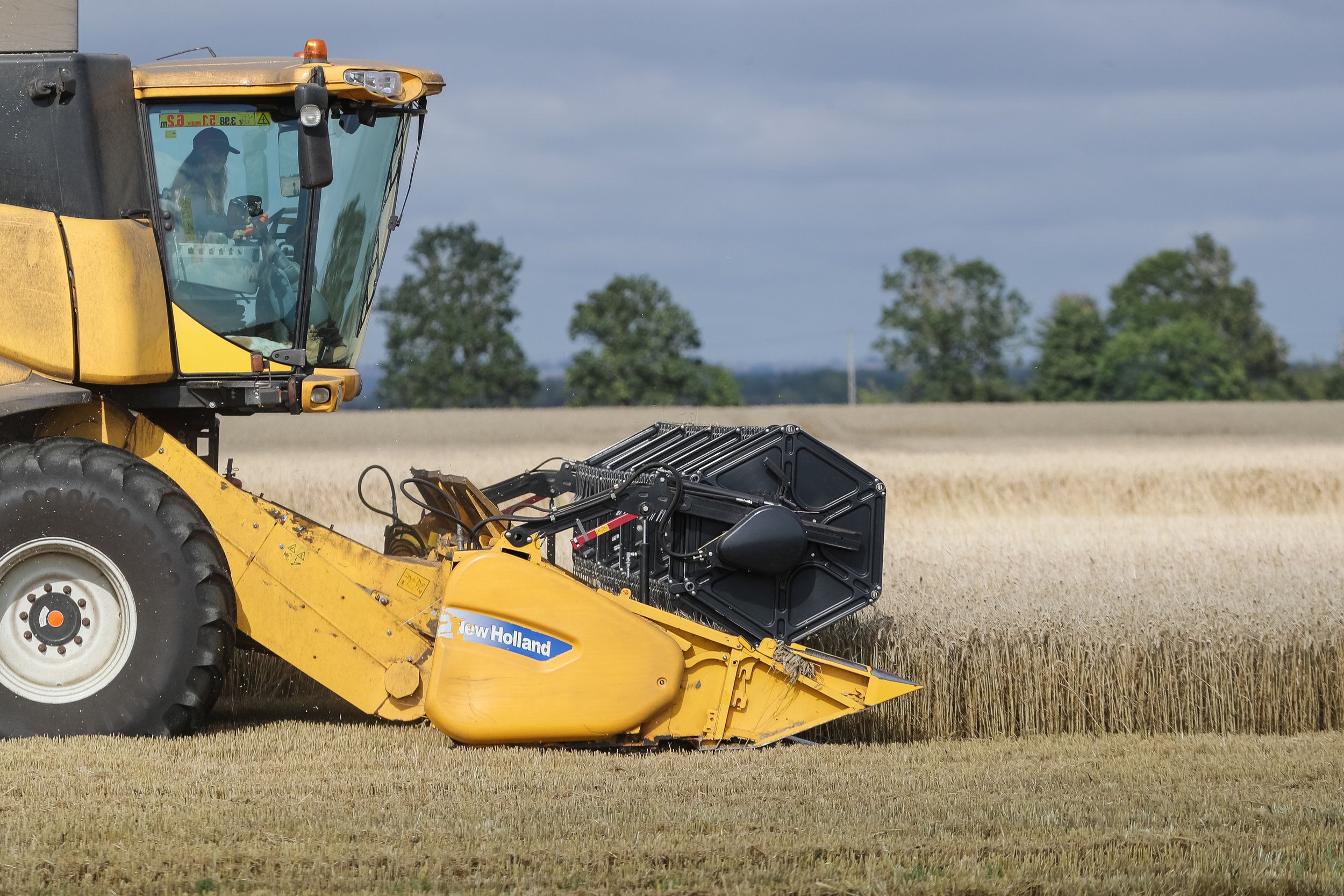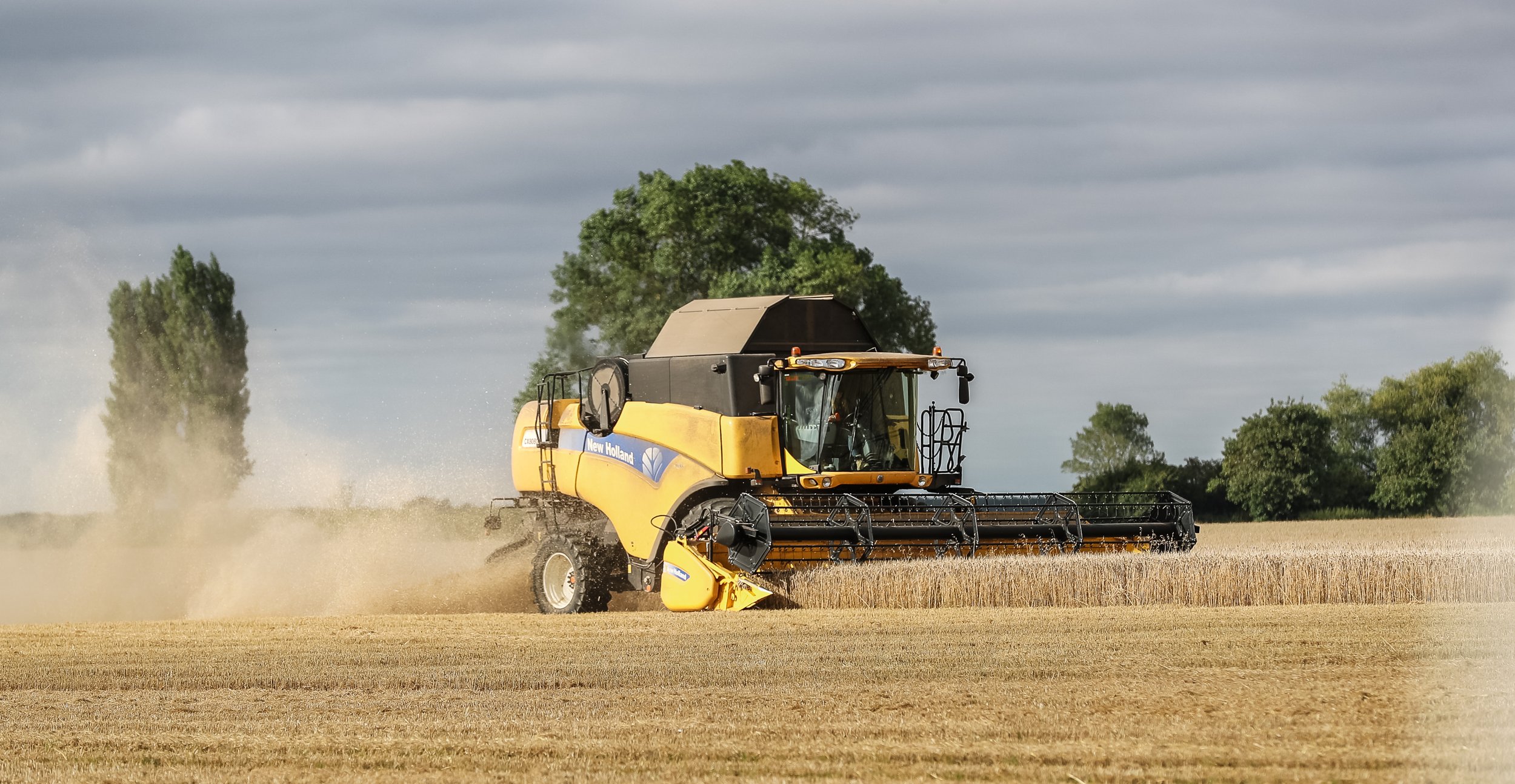Flat Out Farming®: Is farming a sustainable business or should we all re-wild?
The shocking reality of farm costs and farm income – is farming really going to be a sustainable business in future?
- A recap of 2023 – our intense but positive harvest
- 40 years prices – wheat prices today are just 43% higher than 1983, whereas machine prices are a staggering 872% more
- Why are farmers ‘re-wilding’ their land?
We’ve been very quiet here on the JB Farming blog after an exceptionally busy second half to our year in 2023. A decent harvest with just our limited team of James and I was as intense as it was long, but we can be proud that we didn’t miss a trick – every opportunity to work into the night we cracked on, often until the very early hours, 3am I think was the latest - we just kept going day by day until the rain or dew stopped us. Usually the knife on the front of the combine can’t cut the sticky straw of the wheat plant, and it starts bunging up the machine. Time to go home. We had days when we had a little rain, but being such a little team meant we could be back out there a few hours later as soon as it was fit to go. It seems like a distant memory now, but we had a decent run with just two mechanical issues – one, a belt snapping on a frustratingly warm Sunday when none of the parts depots were open, and the other a bizarre ‘electrical issue’. Although, we did have a fair amount of laid wheat to endure to try to get up the combine. That was an education for me.
Teamwork during the 2023 harvest
There’s something rather magical about harvesting into the night, the darkness around you – it’s easy to lose how much more of a field you’ve got to go and just the sight and sound of the machine in front of you, as you battle the fatigue and try to concentrate. There’s the twinkling lights arriving and departing of the tractor carting the corn, and other combines you can see lit up in the distance; a camaraderie of farmers bringing in the grain safely to the shed ready to feed the nation. We did make a little video of our harvest, although this year there was very little additional footage than from the cab – all hands were on deck, real teamwork, with no time to fly the drone or grab a tripod – it was an intense one! You can watch the harvest recap on the link below:
Harvesting into the night!
But while it seemed a joyous occasion to wrap up this season with some half decent results considering how the crop had looked earlier in the year (left you can see us celebrating the conclusion of harvest), the price possible to achieve for that grain we had so preciously nurtured has remained at an incredible low – so much so, it’s today barely worth more than the cost of production. Quite a depressing thought when you’ve put your heart and soul into growing it, taking all that financial risk on it, and then harvesting it, to realise there is little fruit at the end of it. It costs a lot to plant the crop, there’s no guarantees of even breaking even until it’s in the corn store. The current situation is throwing farmers into absolute disarray for what the future holds; add into the mix the vast reductions in subsidy payments, originally created to make food affordable while also offering some kind of safety net for a disastrous growing year to supporting you to have the cashflow to plant the next crop - combined with the relentless rain over the winter planting season and flooding across the country, being a farmer right now is not much fun.
A good study of the reality of farming business and where it is going: We found a newspaper recently from 1983 – over 40 years ago. Feed wheat prices were up-to £129 per ton, and a new combine harvester was around £36,000. Fast forward to today, wheat is currently around £185 per ton, and an average sized comparable combine harvester is around £350,000. So, wheat has gone up 43%, combine harvesters have gone up 872%! Wheat today going to be comparable with the machine cost increases should be £1124.88 per ton! And that’s just one piece of kit we need to do the job with an ever-decreasing sized workforce due to decreasing turnover, plus the farm operational costs are quite endless and ever-escalating, it seems. The price of a loaf of bread has gone up, according to google, from 38pence a loaf to £1.39 in that time, an increase of 256.41%, but it is certainly not the farmers receiving fair increases in prices for their produce. Throw in all of the increased legislation, increased costs to grow, increased fuel costs, insurance costs, labour costs, and taking away the subsidy, add in the difficult weather and pest issues such as cabbage stem flea beetle attacking crops, it’s difficult to understand how many farms, especially those on a smaller scale, might survive.
The new schemes brought in to replace those subsidy payments, where farmers can be paid ‘public goods for public money’ are complex, regardless of what’s being portrayed in the media. If you’ve heard of stewardship and the sustainable farming incentive ELM scheme, that’s what we’re talking about, and while feeding the birds, growing trees and encouraging nature is important, the pressure farmers are under makes some (most) of these ideas seem like a-less-than rewarding possibility. For the farmer who doesn’t particularly like operating a computer and would rather focus on feeding his cows or growing his crops, it’s a bureaucratic nightmare. Mind boggling to go through and understand, the cynical part of me believes this is perhaps saving the public purse, because quite frankly it’s not easy to grasp, even for the seasoned IT user, especially while you’re busy maintaining your farm, making your crops grow, keeping animals alive, adhering to paperwork, battling the elements. However, complex it may be to enter into, this encouragement of swapping farmland for ‘re-wilding’, which may see vast areas of the UK taken out of food production, while property building taking land for development is also still incredibly buoyant, and the flooding that has now resulted in huge crop losses, it surely confirms food security in the UK is very much at the bottom of the agenda. A scary thought, considering the fragility of our nations, and how quickly when a pandemic or war breaks out our shelves are empty of food. Does anyone really care though?
So what now? With no farmers, there’s no food. But is it a sustainable business to keep farming with the direction things are going?
So what now? Well many farmers have lost tens of thousands of pounds in winter crops drowned by the recent weather - a cost they’ll just have to write off and find the cashflow to replant in the spring, or find alternative grazing for their livestock - thankfully we are not one of those, but it does beg the question on where the agricultural policies, and other policies that affect farmers, all will end up and what it means for the average farm. Yes, we all need to do more to save the environment, improve the soils etc, but we all need to eat, and farmers also need to be able to make a living while moving their farm forward – after all with no farmers, there’s no food. With no land to plant food on, whether that’s due to the poor possibilities to make it a viable business, and poor outlook when it comes to the weather, we’re even more reliant on imports. Climate change is global, there’s problems with food production around the world being affected by this shift in weather patterns, and don’t you think they will take care of feeding their own nations first? Plus if you delve into the media, farmers all over Europe are experiencing similar difficulties - with notable protests in Germany, The Netherlands and France. And if UK farmers are jacking it in, selling land to pension funds or developers, or not teaching the next generation because it’s all in a re-wilding scheme, which might be favourable financially even if it isn’t easy to fathom, we’ll be losing the important and wide-ranging skillset required to be a farmer, often with generations of history behind it, and be teaching less and less youngsters that important farming knowledge for the future.
It's food for thought, but certainly not going to help our food prices.
Jen
Images by George Parish / our own


